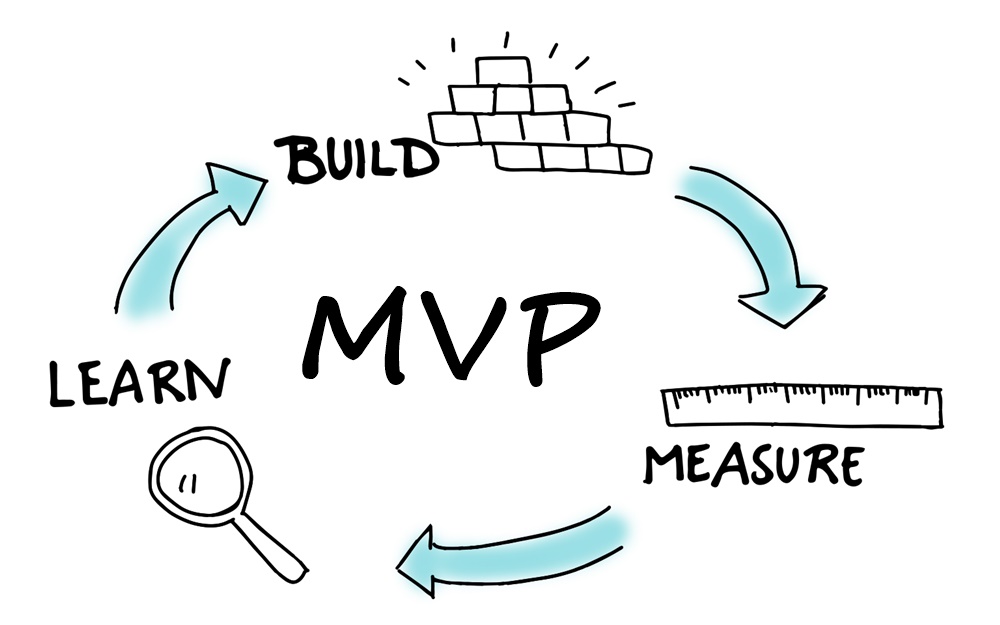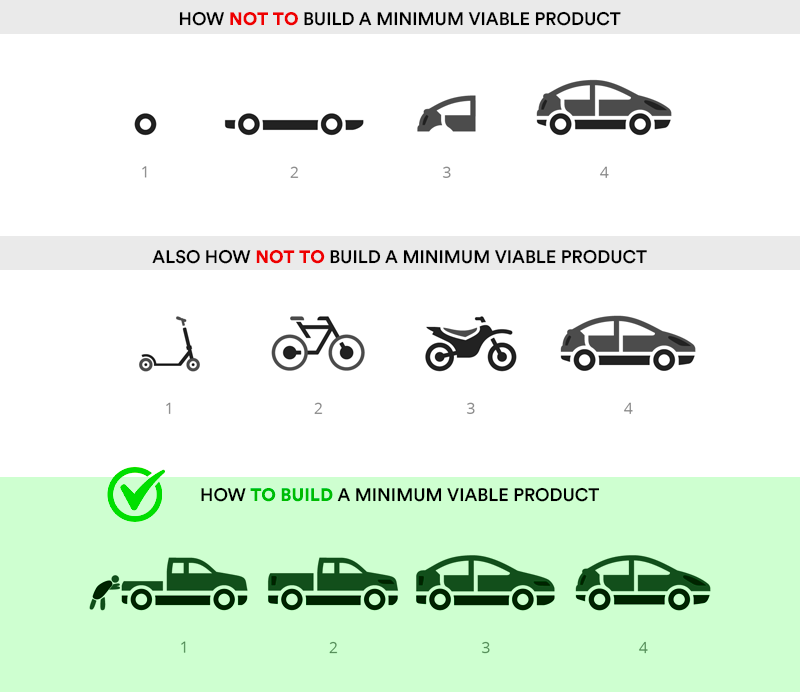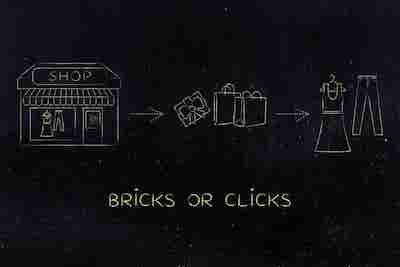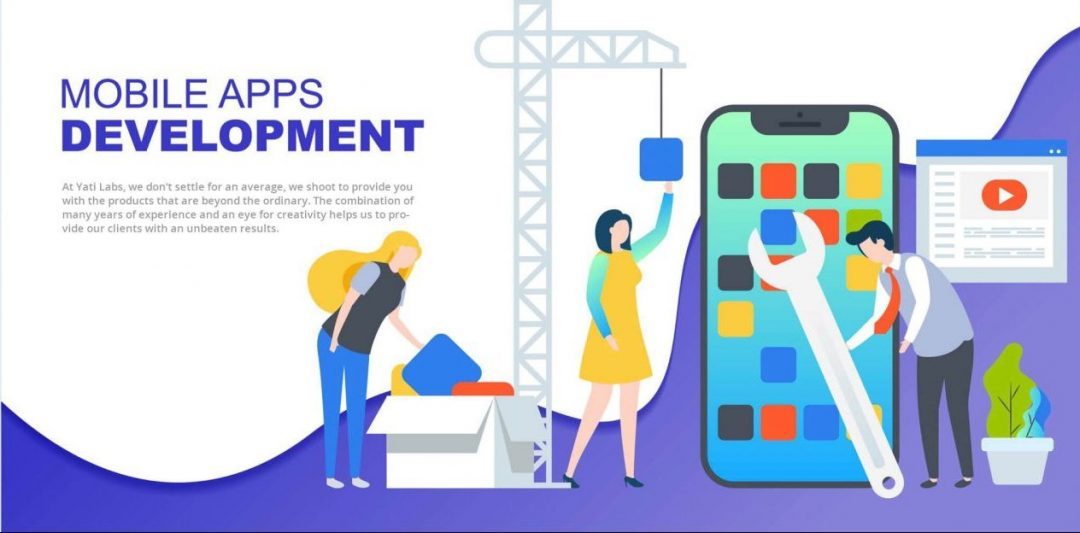Best tips on how to develop and scale your mobile application startup

A journey of app development begins with the first basic idea of a perfectly marketable product for a startup and experiences multiple changes to progress its way towards perfection as per the startup and customer’s desirability. To succeed in the implementation, rigorous and thorough planning is highly recommended and required. Most of the startups often fail or commit a mistake by not outsourcing their mobile application development, hence depriving the mobile application of the much-needed expertise. Unable to handle or tap the real potential of the application, startups end up creating restrictions for their growth.
The false notion that developing a mobile application can itself be adequate to reach your targeted audiences, has hampered the growth of various mobile application startups. Success and excellence in this process lie beyond the considerable myths of the process being easy. Lesser-known factors such as mobile app scalability affect new mobile applications to a great extent. The idea lies in developing and scaling the app for its current and future use. As per the developers, scaling a new mobile app to support millions of users clamoring for access to the app does not count as an easy task. Multiple new mobile apps on an everyday basis tend to experience scaling issues during the most inappropriate time. For example, having no other choice but to make things done, while wanting to develop more of the features that app users look for.
What is mobile app scalability?
The average demand for the service provided by your application in the real world could be possibly high, but to meet these expectations, the mobile app needs to be developed well enough. The ability of the app and service to compensate for the growing demand and easily serve thousands of users is one factor that plays a crucial role when we discuss business growth.
This is when the mobile app scalability comes into play. A scalable mobile can handle a growing number of customers, clients, and/or users. It usually has an architecture that can grow organically with growing traffic and user base. This helps the startup retain and deliver a seamless user experience irrespective of the number of users.
To grow using the mobile application in terms of creating a mobile presence, startups are required to handle the area of mobile app scalability professionally and accurately to manifest desired results. Mobile App Scalability can accomplish a great role in helping a well-developed mobile app that can enhance your business. Things happening otherwise can cause a decrease in your brand value showcasing the truth behind the most obvious statement, mobile app development is a daunting and extensive process.Mobile scalability leads to the mobile application of being able to handle increasing users. On a greater level, it is a way to test the ability and professional expertise of your developer to maintain mobile app development for if the application is not scalable, adding new features or enhancing the app can cause various issues.
Benefits of having a perfectly scalable app
Having considered scalability for the app at the initial stage promises higher chances of steady growth for a startup or company while simultaneously avoiding dead ends and falling behind the user’s demand. A well scalable app has few of these major benefits listed below.
- Maintaining Quality of User Experience along With Increasing User Base
It is no strange fact that viral marketing can lead to instant success as it gets a lot of organic traffic. In such a situation if your built app lacks scalability, the direct impact of this is experienced by the user. When some of them are still new to the service provided mobile app, this kind of instability of the app ruins the first-hand experience for them. This leads to becoming one of the main reasons for losing user engagement over the app. However, if the app can easily accommodate the rapid growth with no error, it will not affect the user experience and hence perform well during the time of your marketing campaign. The user experience of the applications plays an important role in the success of the app.
Even though every app is different and is designed uniquely as per its usage, users, and demands considering the target audience, the need to have a user-friendly interface remains a common factor in all of them to be usable. A better UI will contribute majorly in increasing app’s Responsiveness, Efficiency, Clarity, Attractiveness, and Familiarity.
Also Read: Why onboarding screens are a must for every app?
- Customize Extensibility when users rate is high
With the scalable app, you can easily scale up the app for different events and holidays. It has seen that during holidays the app traffic rate increases suddenly. Scaling your app for such a day can be beneficial for you. You can enjoy some organic visitors.
This extensibility is most beneficial during holidays or national events. Startups, online brands, and others in the service industry can probably scale up and offer special deals and be well-prepared for a quick increase in traffic. Unavailability of such features forces one to confront the design decisions that they have made in the early stages of the app.
- Growth, higher ROI and positive feedbacks
If an app has the quality and ability for potential growth, mobile app scaling helps to detect the kinks and problems of your app. It will save the app from getting negative feedback from its users. By scaling, you can effectively fix the problems progressively for recent and upcoming Android app development. Moreover, you can easily set a platform for the positive feedback.
How to effectively scale your mobile app?
Ok, so you have designed, developed and launched your app on the google play and apple’s app store, now what? How you should get installs of your app, make it discoverable and get user feedback? Here are some of the tips that would help you scale your mobile app effectively and garner user base.
Start Ad Campaigns, Experiment, Work & Re-Work with your Ad Campaign
With the change in time, the demand and importance of paid advertising have increased rapidly. Paid advertising is popular among marketing teams as it can effectively attract a lot of users. However, to enjoy an influential marketing campaign, companies and brands should re-work the ad campaign.
To do so, one can opt to create an ad copy that addresses the visitor’s demand and can offer a great deal. While doing an app development, one should keep in mind that in case the ad copy does not generate the desired result from one channel, other channels such as Instagram, LinkedIn, or Facebook can be evaluated for the usage of the same.
Keep the mobile app organic
Besides the traditional completion of the mobile application development process and launching the app on different app stores, one needs to work on the scaling of the app to enjoy daily heavy organic traffic over their app. As per the report, there are around 5 million apps in the Apple and Google Play app store, one needs to arrive at the front page, to easily enjoy multiple downloads on a day to day basis.
It is highly recommended and advised to use organic ways to convert the viewers into users. To do so, one needs to be creative while optimizing the app descriptions, icons, tags, keywords, app previews and promos. Whether it is an Android or iPhone app development, organic ways can lead to better user growth.
It is one of the popularly regarded facts that app downloads can easily be boosted by just optimising the name and keywords. Therefore, it is extremely vital to keep consumer behaviour in mind and thus making it easy for people to find the app through search engines or app stores.
Consider Influencer Involvement
In the process of mobile or web app development, the most important aspects of the application generally take a back seat instead of getting prioritized. When a business doesn’t consider a value-driven prioritization, it ends up with a poor-quality app. While developing a mobile application, each business should consider the two factors:
- Difficulty level to develop the app
- Its evaluation by, considering its effect on the business
Based on these factors, you will be able to decide which apps features should be developed first.
Optimise the app development to keep up with the quality
The process of mobile app development is like a first-come-first-serve job. The most important apps generally take a back seat instead of getting prioritised. When a business doesn’t consider a value-driven prioritisation, it ends up with a poor-quality app. While developing a mobile application, each business should consider the two factors. Whether the app is easy or hard to develop and how it can affect the business. Based on these factors, you will be able to decide which apps should be developed first.
Build an API layer for easy mobile server side integration
Server Side integration is one of the most difficult and time-consuming processes of both Android and iPhone app development. It can cause the app development process to consume a lot of time. Thus, many mobile app developers prefer to use API. As per their professional opinion, this method has made integration faster and much easier. It includes a lot of methods such as the use of API management tools to deploy the app on a large scale, use of mobile back-end service tools, and use of the RMAD- Rapid Mobile App Development tool.
Use the RMAD tool
RMAD tool uses a coding-optional approach and lets a person with less-experience develop a mobile application. This has also proven helpful for experienced developers to add advanced code easily in the past. It is in the present scenario regarded as one of the perfect tools for developing a scalable mobile application and also for backend integration and front-end development. The usage of this tool can considerably speed up the app scaling process.
Clarity towards the Goal
There are a lot of factors that affect the success and the growth of an app may take 1 to 2 years depending on the personal milestones. In this process, however, besides consistent commitment towards achieving success, effective scaling of the app may require a clear set of goals for the app. This will help understand your target market.
Apart from that, offering customers reliable products and services generates a higher level of positive quality, quantity ranking, and review of the app stores. This indirectly makes the app searchable and desirable to be understood by the influencers. A relevant mobile application will boost your content reach thus making it an installed and kept app by the users on their mobile.
How to know whether the app is scalable or not?
According to the expert professional app developers, to understand the scalability of the app, one needs to test the already existing one first. The reason behind the scalability test is to know the major workloads and come across factors that tend to become obstacles and affect the app’s scalability.
In case if in possession of a perfectly scalable application, it should be a regular activity to test the app for scalability issues. To understand this better, one needs to acknowledge that the basic consumer behavior, that is the user will move away from the app if they find any issues related to performance.
- Load testing
It is the process of applying the demand pressure on the app and measuring the response value. App developers may run endless tests as you want, but only through the load testing, will one be able to know whether the software being used can handle the actual demands or not. Load testing determines the app’s response time, throughput rates, utilization of resources, and its breaking point. Under this, one can fix a certain criterion to make sure the launched product can meet the required conditions. For this one has to make sure that the response time is good. If the results are perfect, then the app is acknowledged as scalable.
- Performance testing
Such testing is generally conducted to analyze as well as boost the performance of the mobile app. It works on optimizing the consumption of resources by effectively analyzing the collected data.
- Scalability testing
This is a part of performance testing, but it takes into account the scalability of the mobile application. The primary aim of the test is to know the breakpoint where the app will stop scaling.
Processing and Planning Scalability
Planning for scalability from the beginning of the App Development will allow the application to grow properly even if there is considerable growth in terms of abundant users. Some of the questions that can help while considering a plan for App Development before getting started could be
How many users will utilize the mobile app within 6 to 12 months?
- What type of information does one plan to create and what is the capacity of the server?
- What is the strategy if the customer base increased rapidly?
The scaling of the app should be done considering the technology to accommodate growth and well-informed business decisions. To do an in-depth research one can look into the previous and expected growth rates. Carefully planned and executed decisions will help in creating a perfectly scalable app. Scaling of the app becomes increasingly important to rank it as a success amongst the competitors. Investing to achieve a proper scalability level for the app, can reap a lot of benefits, thus providing better ROI. Therefore to establish a business that serves millions of users through the developed app, a scalable mobile application should be the first thing on a developer’s checklist.
Evaluating Reasons for Why Majority Apps Fail
According to a survey total of 3,214 Android apps are released every day on Google Play Store, while a total of 1,044 iOS apps are released every day on the Apple App Store. As per a report on Statista more than 4.42 million apps were recorded to be available on the Apple App Store and Google Play Store in August 2019.
In such a scenario, where the number of smartphone users is at an all-time high and growing, the immense competition to survive and excel is challenging for app-based startups and businesses to survive in the market. As per the experts and data analysts, fewer than .01% of mobile apps are estimated to be commercially successful. This number is alarming for the app-based business and mobile app development industry.
As a matter of fact, according to CIO, about 80-90 percent of mobile apps get abandoned after their first use. In-depth research states that an average mobile app loses somewhere around 77% of Daily Active Users just within three days of its installation. The struggle and competition to get an app noticed is so steep that nearly one-third of app engagements (about 35%) last for less than a minute.
To avoid one’s app from becoming another example of these statistics, it is extremely important to address the core issue that leads to it. Here are some of the well-analyzed reasons that are estimated to be the possible cause for hindering the app from becoming a must-have on people’s smartphones, getting organic traffic and being ranked within the play store
- Poorly Researched Market & Audience
- Not Choosing A Platform Wisely
- Improper Testing
- Neglecting Backend Support
- A Poorly Executed Mobile App Launch
- Lack of Originality
- Poor User Experience along with Ignoring User feedback
- Failing to Solve a Real-Life Problem
- Lack of Proper Monetization Strategy
- Being on Extreme Ends – having Multiple or Extremely Limited Features
Becoming Solution-Oriented By Developing an MVP

MVP, also known as a minimum viable product has been developed to be launched in the market to understand the customer’s behavior and responses. The idea behind this approach suggests that the feedback from the customers can be used to develop the final product, This will ultimately lead to fewer chances of failure.
MVP is a minimal product that contains only must-haves features without which the functionality of the app cannot exist without. The idea behind having MVP is not to deliver a poorly executed app and then improve on it. With the minimum vital product, the product created somehow works well enough to solve the customer’s problems. If your app developers have done a good job and have brought real value, quality and execution to the product right from the start, there are chances of the product being so effective that the user wants to engage and pay for it.
The basic structure of MVP in the process goes like
Developing App → Testing It Out → Improve → Repeat
While understanding the concept of MVP to obtain the desired result, sync it with Toyota’s production system’s 3M model. It basically focuses on eliminating three enemies of Lean App Development: Muda (waste), Muri (overburden) and Mura (unevenness). It is important to make this model applicable in the app development industry to be efficient in building and shipping softwares.
Muda – The waste, as they call it. Avoid spending half the day in meetings as this activity doesn’t create value, thus impacting efficiency directly.
Mura – Uncertainties as they refer it. Avoid them. If the workflow of a feature is uncertain the end result would require additional time and resources for quality assurance and bug fixing.
Muri – To plainly out, overloading teams with too many simultaneous tasks, failing to provide them with necessary tools to succeed will only lead to disappointment and delays in the output.
MVP development in recent times has begun getting acknowledged as a great solution-oriented approach for many businesses including startups and well-established enterprises. The reason it has gained popularity among the developer in a short time is that it enables the delivery of the user-attractive projects in a fairly shorter time thus, giving a fair chance to withstand the strong competition. Few of the benefits and advantages MVP development can be listed as follows
- Only needed functionality – That is implementing the core function of the application.
- Testing convenience – Checking the basic version
- Customers’ feedback
- Market Recognition and Understanding
- Less-time consuming, in terms of months and years
- Reasonable expenses – Investors save a pile of cash
Both tech and non-tech companies apply MVPs for their software products and apps in accordance to their services. Popular companies such as Amazon, Twitter, Groupon, Spotify have applied an MVP and succeeded with it.
To sum up the list of the long, unending requirements and needs of an app, several factors are responsible for its successful performance. The secret to achieving favourable results lies in executing each step and ensuring that it leaves an indelible mark among the user audience. As much as in-depth market research along with the best marketing strategies is a ranking factor for accomplishing the desired goal; app development service is where the basic idea is manifested and brought to life. It is important to select the right experienced outsource for mobile app designing and development, that can contain your ideas on a personal and professional level. Yati Labs has a long list of success stories with an extremely satisfied customer base. Our insights into the core reality and issues are a proof to the dedicated team we have onboard to bring alive your ideas.
To reach out to us, you can easily book a free consultation with our business experts. We look forward to discussing the future with you.











